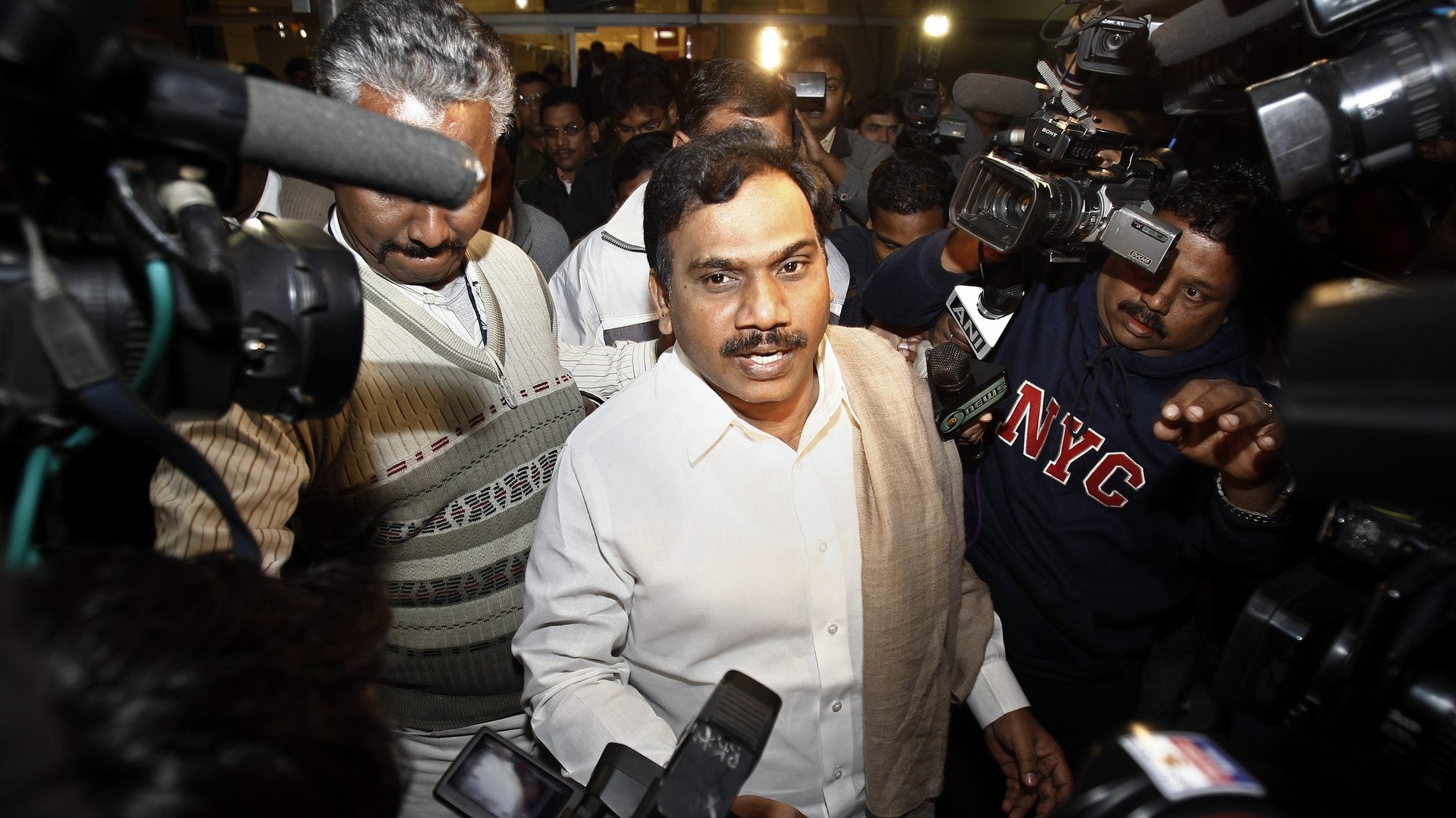An Indian court finds nobody guilty in a $4.7 billion telecom scam
As India’s telecom industry gears up for the 5G era, the ghosts of its 2G past are making headlines again.


As India’s telecom industry gears up for the 5G era, the ghosts of its 2G past are making headlines again.
On Dec. 21, a special Central Bureau of Investigation (CBI) court acquitted the prime accused in one of India’s biggest alleged scams, former telecom minister Andimuthu Raja, marking another twist in the six-year-long 2G scam case hearing.
Raja’s fellow Dravida Munnetra Kazhagam (DMK) party member, K Kanimozhi, and 15 others who underwent trial, were also acquitted. Telecom players like Reliance Telecom, Swan Telecom, and the Tamil Nadu-based Unitech Wireless, who were among those facing prosecution, had all charges against them dropped, too.
Nearly a decade ago, the Indian telecom ministry under Raja conducted the 2G spectrum sales on a first-come-first-serve basis. In the process, he allegedly undersold airwaves and took bribes. A Rs200 crore transfer from DB Group to Tamil TV station Kalaignar TV, partially-owned by the DMK’s Kanimozhi, was cited as evidence of the kickbacks.
The CBI pinned the economic damages from the scrapping of licences granted during Raja’s tenure at upwards of Rs30,000 crore ($4.68 billion as per current exchange rates). In 2012, suspecting foul play in doling out spectrum, the supreme court cancelled 122 telecom licences allocated to 11 companies on or after Jan. 10, 2008—the day the allocations were made by Raja’s ministry.
However, in today’s verdict, pronounced at a Patiala House courtroom in Delhi, judge OP Saini said the prosecution had “miserably failed in proving charges.”
“There is no evidence on the record produced before the court indicating any criminality in the acts allegedly committed by the accused persons relating to fixation of cut-off date, manipulation of first-come first-served policy…” Saini ruled. Damning the prosecution further, he added:
The charge sheet of the instant case is based mainly on misreading, selective reading, non-reading and out of context reading of the official record. Further, it is based on some oral statements made by the witnesses during the investigation, which the witnesses have not owned up in the witness-box. Lastly, if statements were made orally by the witnesses, the same were contrary to the official record and thus, not acceptable in law.
“I don’t know what happened in the trial but there were clear irregularities in the allotment of 2G spectrum which we (CBI) pointed out with detailed evidence,” former CBI director AP Singh, who led the arrests in the case, told the Times of India. The Enforcement Directorate, a state agency dealing with economic laws, plans to appeal against the trial court verdict.
After the court cleared the air, former prime minister Manmohan Singh, who was in his second term when the scam unravelled, said: “The judgment speaks for itself…I am glad the court has pronounced unambiguously that all this massive propaganda that was being done against the UPA (United Progressive Alliance) was without any foundation.”
The alleged 2G scam was one of the reasons the Congress party-led UPA was perceived as one of the most corrupt governments ever in Indian history, eventually leading to the coalition’s collapse and a humiliating defeat in the 2014 elections.